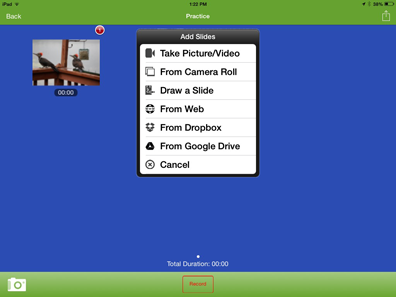I have been reading Pure Genius (Don Wettrick) because I try to keep up on the trends in instructional tactics. What follows is not a reaction to the notion of independent projects or independent study but to an argument the author often forwards in support of the instructional methods that are proposed. I cannot come up with an exact term to describe this argument. My best effort might be something like – “we, as the practitioners, know best”. I do not find returning to this idea on multiple occasions to elevate the merit of the rest of the book.
As one example, at one point the author says:
“Teachers know that theories can never explain a child’s lack of interest that’s caused not by a boring curriculum but by worry about his parents’ fighting.”
OK – so I am likely one of those folks who presented “theories” to future teachers. What am I to make of this statement? Before I retired, I taught educational psychology. I would suggest that it is relevant to this specific example that I also taught the introductory course in psychology. For decades college profs have used “Maslow’s Hierarchy of Needs” to describe the various motives for human behavior noting that basic needs must be met (e.g., safety) before other motives (e.g., grades, satisfaction in learning) will influence behavior. This motivation theory is so commonly taught I cannot imagine any college student, let alone a future teacher, not being asked to consider that “not all needs are equal”. Furthermore, using academic achievement as one of the various examples to help students process this idea is very common. An example might focus on the academic lethargy of a college student who has recently suffered the end of a relationship. Hunger and violence in the lives of younger learners who struggle in school are actually very common examples.
So – theories can explain this situation and even this specific example is frequently presented to future teachers.
While I am on the subject of “theories” allow me to suggest that many use the word incorrectly. The label “theoretical” is sometimes used to imply an idea that is to vague or abstract to be useful. Vagueness and unnecessary abstraction is not to be valued, but these limitations are not predictable characteristics of a theory. Human behavior is very “theory” driven. We are both exposed to theories developed by others and form our own. We use general principles to guide behavior because life experiences are unique and we must have ways to explain these experiences to ourselves even though we have not encountered the exact circumstances before. Perhaps formal and informal theories would be one useful distinction. Science educators probably have been exposed to the concept of “naive science”. Naive science, roughly equivalent to informal theory, suggests that we all live in a world we must do our best to understand. We must deal with physics, biology, etc. daily whether we have studied these subjects formally or not. We form our own theories based on our personal experiences out of necessity. Sometimes such theories work in a specific set of circumstances but are flawed on a more general level. This means science education must no only present new ideas, but sometimes also confront ideas that have hidden flaws.
The argument I am trying to develop here is less concerned with informal and formal theories and is really focused on the value of being open to multiple perspectives. The theories of practitioners are not necessarily in opposition to formal theories. If the formal vs. informal theory argument was not sufficient, allow me to present what educators might recognize as a familiar experience. Parents, typically of students who are struggling, sometimes suggest that the teacher is not aware of the unique characteristics of their child and if even if this is not the case the teacher is unable or unwilling to adapt instruction to accommodate these characteristics. The teacher and the parents have different perspectives and see the student from the perspective with which they are most familiar or perhaps feel they must address in a general way.
I understand that appealing to group identity is a technique for making people feel good. I also understand that teaches may feel under attack and feel a need to look for support. However, taking a we/they approach as in we know and they do not is only a reasonable long term strategy when those functioning according to different perspectives are actually adversaries. In this case, I think learning from different perspectives would be more productive.
24 total views


You must be logged in to post a comment.